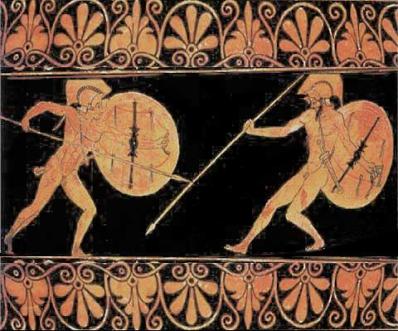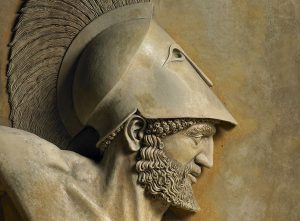 Known From: The Iliad
Known From: The Iliad
“If I return home to my dear native land, lost then is my glorious renown, yet shall my life long endure, neither shall the doom of death come soon upon me”
-Achilles, From The Iliad
The hero of The Iliad, Achilles is the central character and fiercest warrior in Homer’s epic. He is portrayed as being hot-headed, ferocious, and often filled with grief. Achilles as the mournful warrior is a theme that Homer recounts several times during the course of The Iliad. Combining the nature of a grieving Achilles with his supposed immorality and unrelenting rage on the battlefield makes for a complex and deeply human Greek hero.
Achilles was supposedly the son of the water goddess, Thetis, and the mortal king Peleus. Achilles’ mother is a recurring character in The Iliad and she attempts to aid her son in numerous ways. While Homer makes no reference to Achilles as an immortal; other variants of the stories, written by the Roman poet Statius, describe how Thetis held her infant son by the heel and dipped him in the river Styx to grant him everlasting life.

Achilles and Hector
As a young man Achilles was reared by the centaur Chiron, who was said to be kind, wise, and knowledgeable in the ways of medicine. While a disciple of Chiron, Achilles fed on the innards of lions and wild swines. In The Imagines, a work written by the Greek poet Philostratus of Athens, Chiron is said to have told the young Achilles:
“For although you have been taught by me thus gently the art of horsemanship, and are suited to such a horse as I, some day you shall ride on Xanthus and Balius; and you shall take many cities and slay many men.”
The prophecy would be fulfilled within the pages of The Iliad.
Xanthus and Balius were the names of the two horses that would drive Achilles’ chariot into battle. This prediction by Achilles’ teacher would be fulfilled within the pages of The Iliad.
Click the link to read more about Achilles
-The Glory and the Tragedy of Achilles











No comments
Trackbacks
Our apologies, you must be logged in to post a comment.